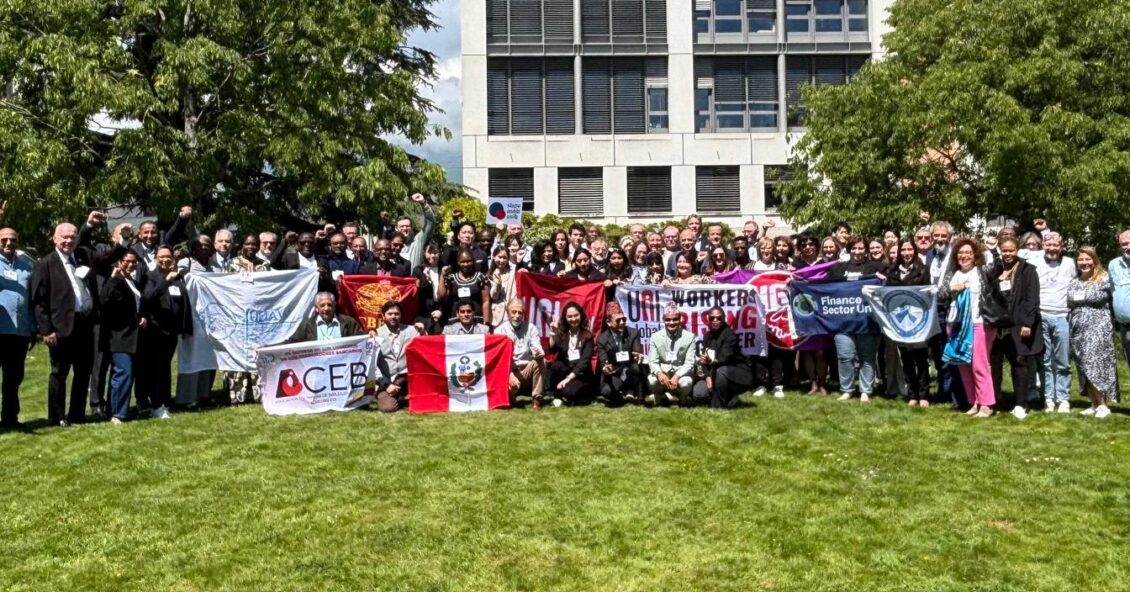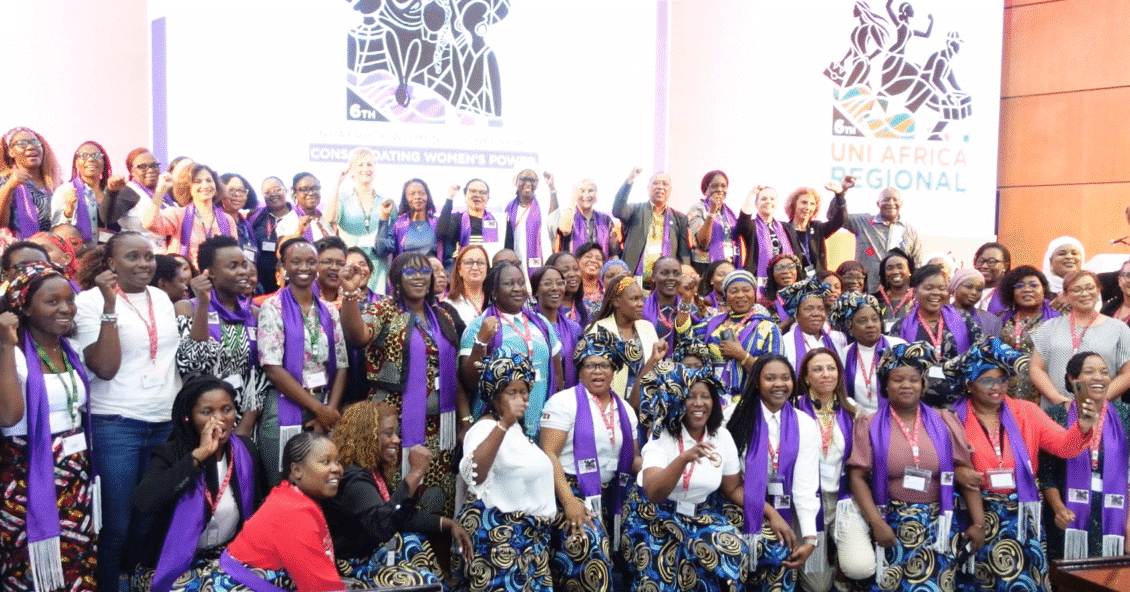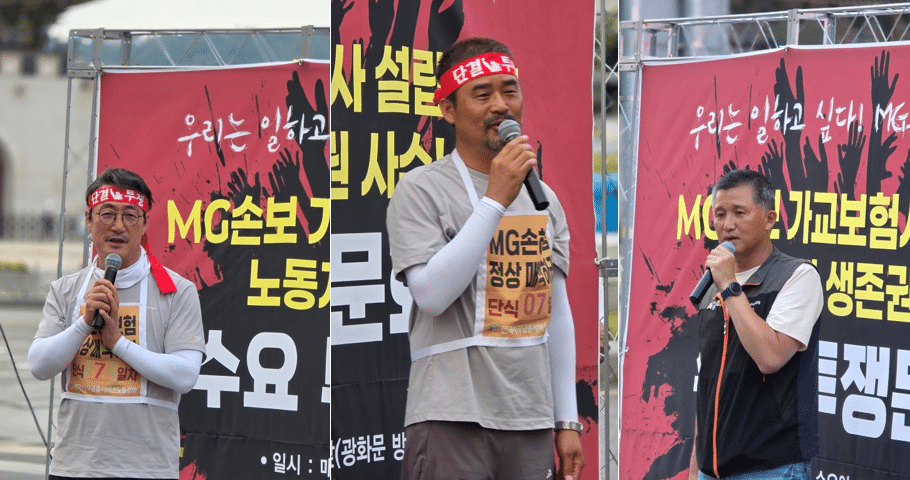Finance unions gather in Switzerland to confront AI’s impact on the sector
15.05.25
More than 80 trade union leaders from affiliates in 35 countries gathered at UNI Global Union’s headquarters in Nyon this week to confront the growing impact of Artificial Intelligence in the banking and insurance sectors.
The event, organized by UNI Finance, brought together trade unions, international institutions, and major banking employers to discuss the impacts, risks and opportunities that AI presents for workers – and how unions can shape its implementation.
UNI Global Union General Secretary Christy Hoffman highlighted that UNI has been at the forefront of discussions on the impact of AI on workers. She emphasized the critical role unions play through social dialogue and collective bargaining.
“It’s not intuitive that AI is a worker issue, but it is,” said Hoffman. “As trade unions, we understand harms, mitigation, risk assessment and the problems that rise from the intensification of work. We need to be ready, we need to talk to each other and we need to learn from each other. We can be prepared and build our own capacity.”
UNI Finance President Anna Maria Romano warned of a dangerous shift in the workplace dynamic:
“The moment we start serving AI blindly – when we let algorithms dictate our pace, our decisions, our worth – we risk crossing a dangerous line. A line where the human being is no longer the beneficiary of progress, but its product. Monitored, profiled, optimized – and eventually, commodified.
“Our role, as trade unions and as defenders of human rights at work, is to keep that line in sight. To make sure that AI empowers people – not replaces them. To ensure that workers have agency, not just efficiency,” she added.
Expert analysis: Risks and realities
ILO economist Uma Rani offered a detailed overview of AI’s dual-edged impact – highlighting gains in efficiency and safety but also concerns around surveillance, bias and job intensification. She cited OECD surveys showing that 42 per cent of finance workers and employers in several advanced economies already use AI.
From Eurofound, Dragos Adascalitei said we are entering a new era of digitalization characterised by faster adoption of AI technologies and diversifying the tasks that can be done by AI. However, he argued that AI is more likely to augment than replace most jobs, though lower-skilled workers remain most vulnerable.
“Aggregate employment effects of AI are mostly positive, but much will depend on how productivity improvements play out,” he noted, stressing the need for worker participation and upskilling.

The employer perspective: caution and collaboration
Chief Data and AI Officer, Aldrick Zappellini, at French banking group, Crédit Agricole, explained how his organization had spent years investing in developing, testing and training AI before it could be implemented, but that workers are still key.
“Every task must be done as well as a human. Every response to a client is checked by a human,” he said, adding that that bank must ensure its AI systems enhance their processes whilst also adhere to their ethical standards.
Pierre Koelsch, the Group’s Labour Relations Manager, cited Crédit Agricole’s global agreement with UNI, which allows employees, through collective bargaining, to identify, prevent and mitigate the potential negative impacts of new technologies, in particular AI.
Marco Ditta, Group Head Data officer, at Intesa Sanpaolo, Italy’s biggest bank, revealed they have set up a dedicated internal forum on AI, to discuss everything it impacts within the bank and its customers. AI is being implemented as an industrial, scalable tool with a governance mechanism focussing on responsible AI.
Patrizia Ordasso, Industrial Relations Manager at Intesa Sanpaolo, said the bank has set up mandatory training and tools for workers to gain new skills for now and the future. Every step of the process goes hand in hand with unions, she said.
Unions taking the lead
It’s not just employers doing the training, Natalie George of South Africa’s SASBO reported that over 1,000 members have already completed digital upskilling courses through the Sasbo Digital Academy, with plans to form a joint oversight committee on AI.
Elsewhere, unions are using AI to advance progressive goals. Duygu Akcay of FNV (Netherlands) argued for a four-day week, enabled by tech-driven efficiency. “The five-day week is out of date. We can work smarter, increase productivity, and reduce stress,” she asserted, adding that stress is a major cause of absenteeism in the country.
In India, L. Chandrasekhar of AISBISF warned that India’s AI-driven banking transformation is accelerating rapidly, but with the absence of a strong regulatory framework as in the UK or EU. He explained how his working to give workers a voice.
One way this can be done is through joint codes of conduct on the implementation of AI in the workplace, which are being rolled out in Belgium at the trade unions’ initiative, noted Elke Maes from ACV Puls.
John O’Connell of FSU Ireland pointed to the need for a fair transition, noting that women are disproportionately impacted due to their high representation in AI-exposed roles. He revealed that 88 per cent of their members fear losing their jobs. He called for stronger bargaining, public investment in upskilling, and use of the EU AI Act to defend workers.
We know from Arne Håstein ( FSU Norway) that negotiating on AI is not straightforward, and the union has instead established a collaboration forum with the employers to jointly explore what provisions could be included in a collective agreement.
In Australia, Nicole McPherson of FSU showcased how her union used AI as a issue to organize employees in the banking and insurance sector. Using survey results from 2,200 finance workers, the FSU recruited hundreds of new members and built a workplace charter on AI.
Head of UNI Finance, Angelo Di Cristo closed the event with a strong call for ongoing collaboration:
“AI is moving fast. But we are moving too. We must take inspiration from each other, share our knowledge and keep up-to-date. This meeting was by no means a one-off discussion. Through UNI, we can build the tools we need to shape the future of AI in the workplace. Through organizing and collective bargaining, we can ensure that workers are heard, protected and prepared for the future.”


